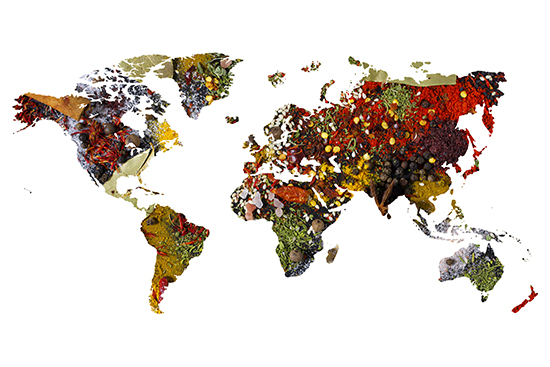Türkiye’s food industry has recorded a steady growth in recent years, with the Turkish consumers becoming increasingly demanding, driven by the multitude of choices offered by mass grocery retail outlets. Rising disposable income and changing consumption patterns, along with the increase in the number of persons in full-time employment, have all led to an increase in interest as regards packaged and processed food, such as ready-to-eat meals and frozen food.
As the sector is getting more sophisticated, Türkiye is becoming one of the largest markets for baked goods with its bread – an important element of the Turkish diet – leading to some of the highest rates of per capita consumption in the world. On the other hand, subsector dairy products including milk, yoghurt, cheese, ayran (a drink made of yoghurt and water) form an integral part of the traditional Turkish diet. Traditionally, artesian, unpackaged products have dominated the Turkish dairy market, holding back widespread growth but also posing a potential to the investors.
The food, beverage and tobacco industry also has the highest share in household consumption in Türkiye, with about 27 percent in recent years. The strengths of the industry include the size of the market in relation to the country’s young population, a dynamic private sector economy, substantial tourism income and a favorable climate.
The food and beverage industry contributes to Türkiye’s exports as well.
Türkiye’s food and beverage industry has been one of the most attractive areas for foreign investors. It has attracted tremendous amount of foreign direct investment (FDI),, as it offers lucrative investment opportunities to global investors.
To sum up:
-With its young and growing population, food and beverage consumption and production are both increasing in Türkiye.
-The Turkish food industry has important export opportunities due to the diverse agricultural products available in the country.
-Being a developing country, the GDP per capita is expected to increase in coming years, which will also have the effect of increasing consumer spending.
-An interested young population is open to trying new brands and products.
-Growth in the tourism sector also benefits consumption in the food and beverage industry.
-Since the market is still not mature, there are many opportunities for new products to enter Türkiye. Besides, Türkiye’s rapid transition from an agricultural society to an industrial society, the agriculture sector has been changing and improving.
Escalating urbanization and employment play a decisive role on food consumption. As the time spent at work and on the road gets longer, the energy and duration allocated to food preparation diminishes. Consumers mostly opt for the most practical and quickest solutions.
The food sector is so advanced by now that it is possible to get chopped tomatoes, crushed garlic, ready-made salad dressing and all kinds of jam. And it is not only working people who prefer such products. Quite a few others choose them for their taste rather than their practicality.
Fruit and vegetable products, the most important sub-sector of the food sector, embodies heaps of products from canned food to fruit juice, beverages and frozen fruits-vegetables.














